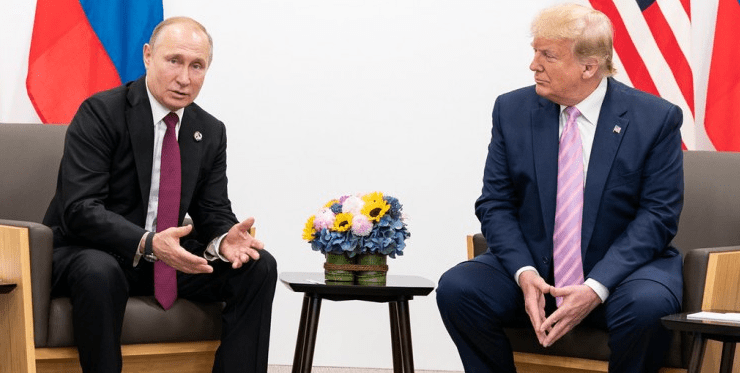The New ‘C’ Word

Lisa Van Dusen/For The Hill Times
Sept. 4, 2019
The word “conspiracy” has been so tainted by crackpots, including the one in the Oval Office, it may be due for a semantic reclamation.
Like most editors, I have a bit of a thing for words; where to stick them, how to spell them, whether sh*tshow requires one or two asterisks to protect the delicate sensibilities of readers. It’s why my favourite quote from the late, great Washington Post editor Ben Bradlee isn’t “I truly believe the truth sets men free,” but “Is dickhead one word or two?”, though both have never seemed more pertinent. (Dickhead is one: Merriam-Webster).
Which is why I’ve been fascinated by the recent evolution of the word “conspiracy.”
Funnily enough, at this unprecedented intersection of motive and opportunity as to the enabling of conspiracy based on the irresistible combination of cybertoys, anonymity, unaccountability and impunity, the word conspiracy in its original, accurate meaning seems to have gone out of fashion.
It could be that, like so many other words — “presidential”, “crime”, “misdemeanor”, “normal”, “sane” — that have undergone semantic shifts recently based on opportunistic re-branding, conspiracy has lost its true meaning. Maybe with the role the internet, shock radio and Donald Trump have played in conflating real conspiracy with conspiracy theory — from birtherism to pizzagate — in the minds of the public, they’ve created a tacit interdiction against identifying real conspiracies as conspiracies based on the generalized fear among sane people of seeming as paranoid and tinfoil hattish as the current president of the United States.
One of the great pieces of journalism of the past five years that captured 21st-century conspiring and the power realignments enabled by it was the May 2017 Guardian investigation by Carole Cadwalladr (watch her TED talk here) exposing the role Facebook and Cambridge Analytica played in the narrowly-won Brexit referendum that unleashed the existential crisis currently tormenting the United Kingdom. Headlined The great British Brexit robbery: How our democracy was hijacked, its intro blurb is “A shadowy global operation involving big data, billionaire friends of Trump and the disparate forces of the Leave campaign influenced the result of the EU referendum.” Despite what would seem to be a classic case of conspiracy, the word “conspiracy” appears just once among the more than 5,000 of the piece, in a quote from the head of a small interest group given £100,000 in the last week of the campaign by the same Leave organizers later slapped with record fines by the Electoral Commission. “There’s no conspiracy here,” he said, in the manner of John Cleese misrepresenting a dead parrot as merely pining for the fjords.
In the 20 years since the dawn of the new millennium, we’ve seen: a collusion-driven global financial cataclysm; an ongoing epidemic of vulgar political thuggery among elected politicians suddenly behaving like autocrats; shocking democratic outcomes that have catalyzed disastrous power shifts; an unprecedented mania for relentless lying, flouting of the rule of law and national self-sabotage on the part of leaders crucial to the future of the liberal world order; and a global surge in attacks on journalists from bitchy presidential tweets to unlawful surveillance to decapitation. The good news is, we don’t have to worry about this borderless shitshow of dickheads run amok in an eerily similar fashion being a conspiracy because all conspiracies are theoretical now.
Surely a word so distorted and discredited is due for a comeback. We should launch a campaign to rehabilitate it (#ConspiracyNotTheory?) before certain entirely unaffiliated players — Donald Trump, Boris Johnson, corrupt intelligence interests, Russia, China, Big Tech — osmotically synchronized by spooky action at a distance but screwing with democracy all at the same time begin to seriously target the freedom of speech that might otherwise describe their actions not as random, purely coincidental chaos but a shameless, cynical crime against humanity. Coincidentally, of course.
Lisa Van Dusen is deputy publisher and associate editor of Policy Magazine and a columnist for The Hill Times. She was Washington bureau chief for Sun Media, a writer for Peter Jennings at ABC News, and an editor at AP in New York and UPI in Washington.
